Europe could break an all-time temperature record in the next few days. And parts of southern Spain and Portugal are forecast to go above 47C (116.6F), surpassing national records.
But if you couldn't tell from the thermometers, there are giveaways everywhere - from a melting mountain in Sweden to a rumoured Brussels sprout shortage.
Here are just some of the developments - some weird, some disturbing - that the heatwave has sparked across the Continent...
1. A melting mountain
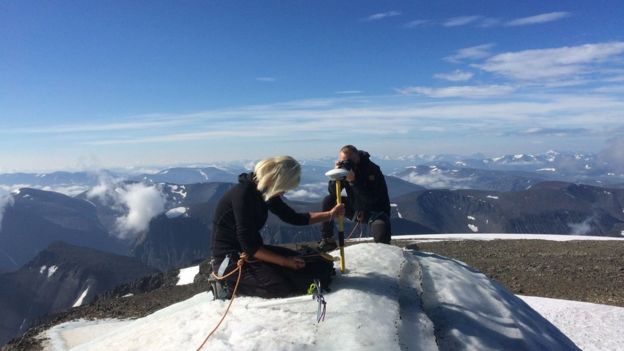 AFP
AFP
A glacier on Sweden's Kebnekaise mountain is no longer the country's highest point, because it melted so much during July.
Gunhild Ninis Rosqvist, a geography professor at Stockholm University, called the development "quite scary", adding: "You see the effects of climate change so clearly here."
The popular peak lost 4m (13ft) of snow between 2 July and 31 July.
2. Switzerland's fish rescue
Switzerland's fish are frying (so to speak), and several cantons have had to launch rescue missions to stop them suffocating. When the water temperatures rise above 27C (80F), many species cannot survive. Last week, Lake Constance reached 25C.
In some areas, fishery chiefs have been able to gather threatened species and relocate them into cooler waters. However, they say this has not been possible in Lake Constance and the Rhine.
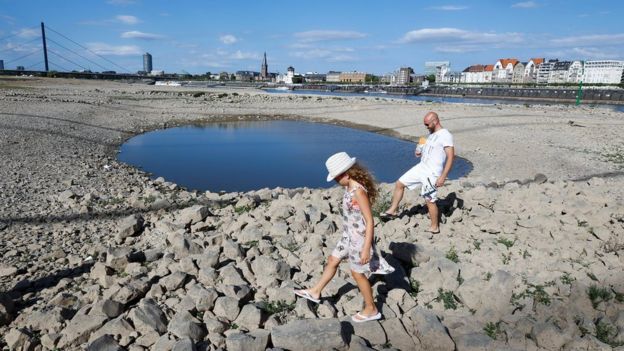 REUTERS
REUTERS
Meanwhile, on dry land, Switzerland is also looking out for its other residents. The Swiss army has also let soldiers wear shorts and T-shirts instead of their regular uniforms. And police dogs are being equipped with shoes to protect their paws from overheated pavements.
3. Fears of a Brussels sprout shortage
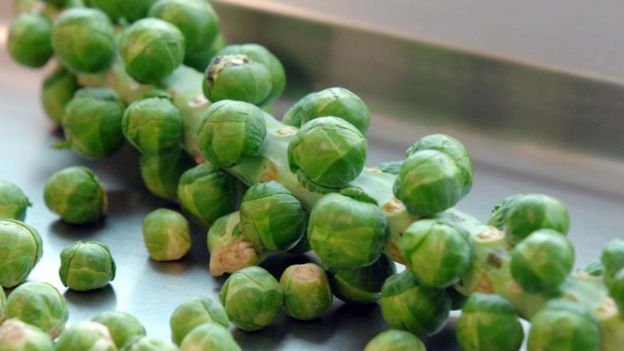 PA
PA
A divisive one, this. For the sprout haters among us, news that hot weather creates a "hostile environment" for planting the veg is unlikely to trigger much regret.
For sprout farmers, however, it's a major issue - and they're warning a shortage could be round the corner.
Potatoes are also in peril, with reports they will be smaller than normal this year after the rigours of a cold winter and a freakishly hot summer.
Bad news for Christmas dinners - good news for veg-avoiding kids.
4. Frozen food for zoo animals
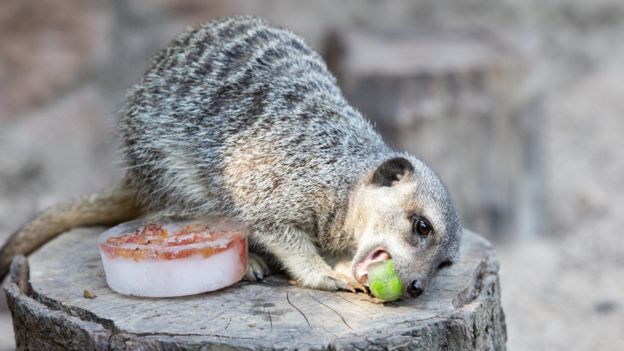 ZSL LONDON ZOO
ZSL LONDON ZOO
Humans aren't the only species sweating right now - and zookeepers are going the extra mile to keep their charges cool.
At La Palmyre Zoo in south-west France, the carnivores are enjoying sorbets of blood and meat morsels, French news site Libération reports.
Herbivores can get on board too thanks to frozen fruit mixtures.
For London Zoo's silverback gorilla, Kambuka, an icy melange of chickpeas, walnuts and sugar-free fruit cordial apparently hits the spot.
5. Toxic algae in the Baltic
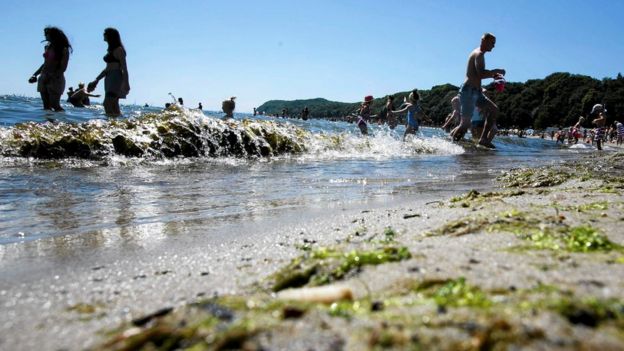 REUTERS
REUTERS
Swimming is off limits on both sides of the Baltic, thanks to a major bloom of toxic algae triggered by the weather.
People in Poland, Lithuania and Sweden have been advised not to enter affected waters.
Finnish environment institute SYKE said the outbreak is among the worst this decade.
Scientists are thrilled, however - because the green gunk helps them study what bacteria are sensitive to, and it could help beat antibiotic resistance.
"It's a great opportunity to collect material [for research]. In recent years, we had trouble collecting enough," said Hanna Mazur-Marzec, a professor at the Polish Academy of Sciences' Oceanology Institute.
"Now we can simply fill up a bucket."
6. Water cannons target trees
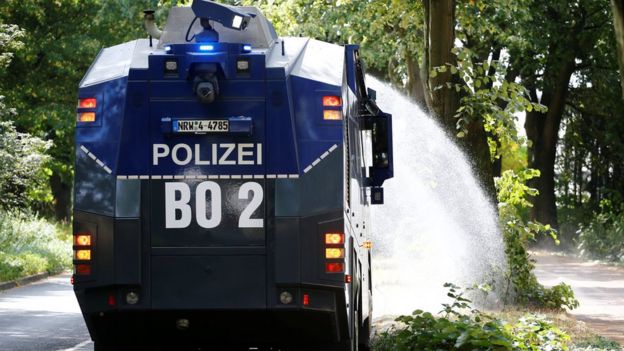 REUTERS
REUTERS
In Germany, police have been turning their water cannons away from civil control and on to parched trees.
Their trucks have been spotted watering public parkways in Berlin, Hamburg and across the country - even outside Angela Merkel's office.
The act has also taken a competitive edge. Last week, Berlin police tweeted their counterparts in Frankfurt, Munich and across the border in the Austrian city Vienna to encourage them to join the "challenge".
Frankfurt accepted and posted photo evidence. But the more southern cities of Munich and Vienna declined, crowing that they had recently enjoyed a burst of rain.
Comments
Post a Comment